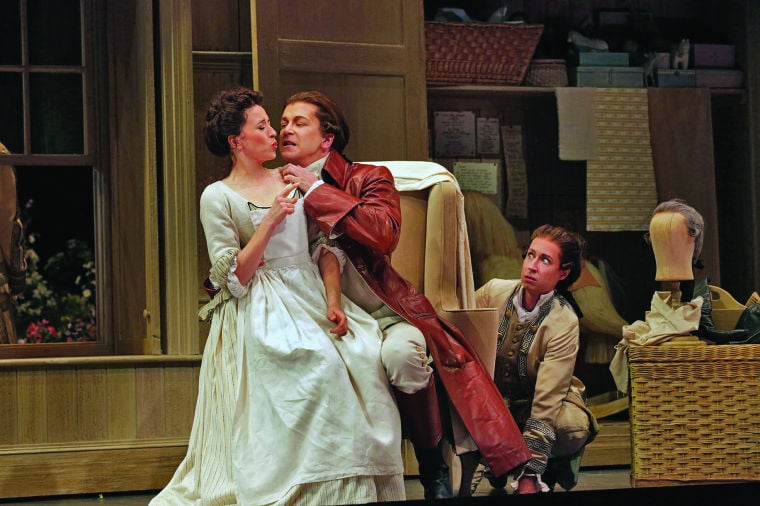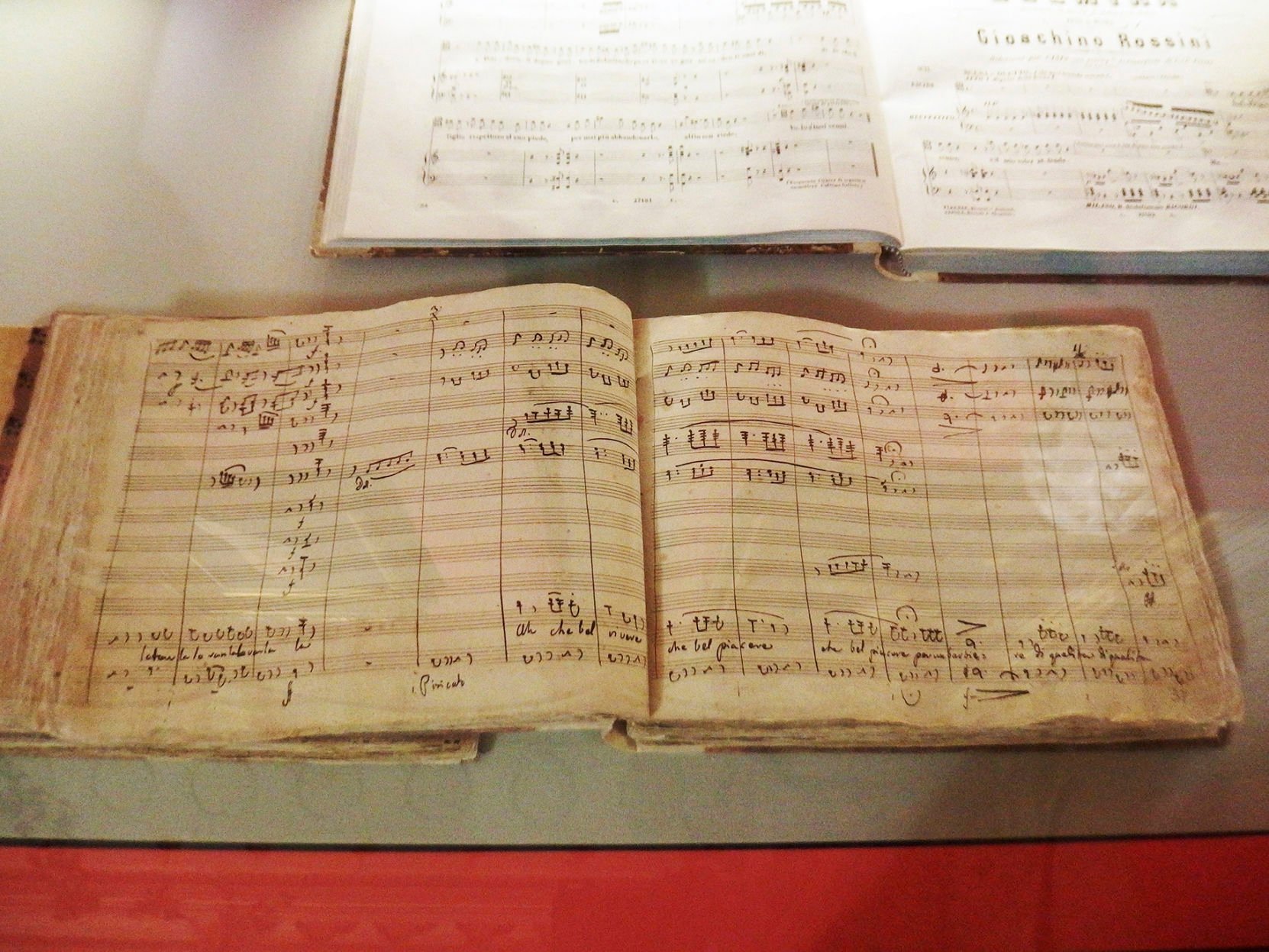

One result was to turn a cosmopolitan play into a raucous, Italian-style comedy. To blur that distinction, as this production did, creates new problems. Still, part of the opera's tension derives from the clear separation between high-born and low. The hired help did not approve of the Count's wish to hold onto the old aristocratic privileges, especially his right to pick the first fruits of every season's marriageable female crop.

However, Miss Levine's point was reasonable and defensible, if overdrawn. It was odd to see a drunken gardener throw a flower pot at the Count's chest and to find farmhands treating the proud aristocrat in a sneering and intimidating way in his own drawing room.

He faced up to his master without apparent fear and so did, in various degrees, most of the other menials. King, whose English was occasionally muddled and who lisped, has a robust bassbaritone voice that he seemed unwilling to use below a hearty bellow. Figaro, as impersonated by Malcolm King, was an aggressively hostile, pugnacious servant who appeared more eager to confront Count Almaviva (Michael Devlin) than to outwit him in the traditional ways. Rhoda Levine's staging placed unusually strong emphasis on the social conflicts that lie at the base of the Beaumarchais play. Now, the pendulum has swung far in the other direction. One went to ''The Marriage of Figaro'' to hear ''Dove sono'' and the other immortal arias, but certainly not to attend a lecture on 18th-century political life. There was a period earlier in this century when the work was commonly presented as bedroom farce on an aristocratic level, with little if any attention paid to the social or political overtones imbedded in the story. When the opera is presented in English translation, as it was Thursday night by the Santa Fe Opera, one more opportunity for stretching and bending an indestructible piece is added to the mixture.īut if ''The Marriage of Figaro'' is arguably the most nearly perfect opera ever written, it is clear that not everyone agrees why. Mozart's ''The Marriage of Figaro,'' a Viennese composer's Italian setting of a French play, is a medley of national influences that already offers a certain elasticity in staging approaches.


 0 kommentar(er)
0 kommentar(er)
